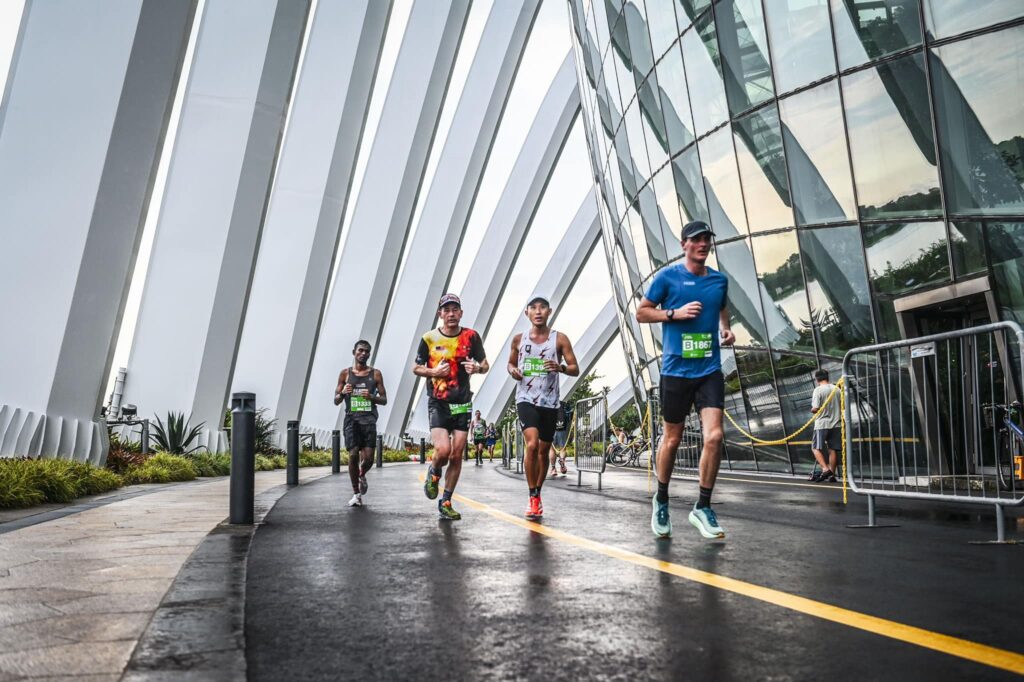Throughout the history of triathlon new technology has been at the forefront of faster times and enthralling races. Every decade or two, something really big comes along and changes the landscape of both racing and training.
Whether it has been the adoption of carbon bikes or even carbon plated shoes, triathlon is a sport that has always thrived on technological advancements.

I am sure you’re aware of the current situation with AI, or artificial intelligence, and how it is changing the world as we know it, but have you ever thought about what AI means for the future of triathlon?
I have been asking experts in a variety of fields what AI means for triathlon and I have come to some interesting conclusions. But first, it’s worth noting that AI is not yet to the point where it is able to give you the same training advice as a coach.
Always get your advice from your coach or from a reputable expert. Although already making waves in the sport, AI should be used with caution.
AI in triathlon
Currently, there are plenty of AI coaching tools on the market like Humango (check out the IronmanHacks interview with them here), PKRS, and TriDot.
They all follow a similar approach: They build training plans according to the athlete’s parameters, then modify them on the fly based on the metrics the athlete responds with.
And as AI progresses even further, more innovations will be possible.
Imagine if with the power of AI, you could identify how often someone needed a massage, what they should eat and how often, or which coach would be best for them.
This would be game changing. It would take the idea of marginal gains and really push it to the limit. And indeed, some of these things are happening now, making them more than just a distant fantasy.
The human element in coaching
While AI can certainly fulfill the hard skills – creating training plans – athletes still need human coaches for the softer skills they can provide.

This emotional layer is not something any AI can truly fill. A coach’s wisdom, experience in the sport, and general emotional intelligence goes a long way to guiding and adapting to the athlete’s individual – and sometimes not very rational – needs.
In an interview I did with 1500m world champion Josh Kerr, he told me about how irreplaceable a coach is. Josh explained that a training plan made with a variety of factors like enjoyment as well as performance is what yields the best results. He used the example of the session he used to do on Friday and how he would hate it.
To fix this, he and his coach decided to sit down and make a change. If coaching was purely AI-run this crucial change would not have been possible. It would have been hard for the AI to know what was enjoyable and then include that in the plan.
And according to an AI expert I spoke to, AI is not yet at a point of general intelligence. This would be when an AI would be able to think completely like a human in terms of empathy and a regard for athlete’s enjoyment.
General intelligence is right now just a distant ambition and is what will be required for the creation of optimal training plans and workouts.
Will AI turn triathlon into a pay to win sport?
Today, in triathlon, many athletes spend large amounts of money on bikes, shoes, power meters, wetsuits, aero equipment, and more.
This is obviously not possible for all triathletes, and leads to an unlevel playing field. Similarly, with AI, achieving the best results may be based on how much money you have to spend, further enlarging the gulf between those with more and with those with less to spend.
Consider that these cutting-edge tech developments will have taken millions to develop and the big companies that own the tech will be eager to capitalize on it.
Which leaves us in a situation where athletes can not only improve their kit with money but also improve their own physical fitness and triathlon ability with money. Is this right?
The future landscape of AI in triathlon
The future for AI in triathlon is exciting as well as being potentially very worrying. AI is not yet at a point where it can provide perfect training plans that account for athlete enjoyment and the softer, emotional side of things, but it will someday get to that point.
And when it does, I truly think that the record books will be completely rewritten as well as the gap between the select few that will have access to the best form of this revolutionary technology. If we see AI continue to develop at this rate the possibilities are truly limitless.
Conclusion
In conclusion, AI is a revolutionary tool which is already changing how athletes train, and the technology is moving at a breakneck pace. AI is currently able to analyze large amounts of athlete data to strike the perfect balance between training and recovery. However, it is not perfect, and is not to a point where it can replace a human – yet.
Remember that your coach is the best source of knowledge and advice. When AI is capable of all these things, we must prioritize facts from reputable sources as a cautionary approach.
And along with the potential risks come massive rewards for the athletes that will one day fork out the cash to get access to a triathlon-specific AI. This has the potential to further triathlon’s position – but if it becomes too much of a pay-to-win sport that is not ideal. Overall, the future for AI is exciting and one that could change triathlon forever.


Leave a Reply
You must be logged in to post a comment.